Late last month I attended the Jaipur Literary Festival, where my wife, Hong Ying, had been invited as a speaker.
It was my first time to visit India and, what a start! The ‘Pink City’, as Jaipur is distinguished among the Rajastan states, is a modern provincial capital of several million people, as chaotic and noisy as any other town in India – but its fairy tale centre is preserved intact, meriting the adjective ‘fabulous’ that is found in every guidebook. There are times when one looks up and the film set surroundings transport one back in time. We played truant from the literary proceedings whenever we could. We wandered the markets, luxuriated in the splendour and beauty of the palaces and fortresses, and climbed to the top of that most magnificent of Follies, the Hawa Mahal, the luxurious façade built by an indulgent rajah for his concubines so they could peer through the lattices at the goings on of the outside world without breaking Purdah. From its turrets, the city below, so well preserved, reminded me of towns in Italy where one needs only to step off the high street to become lost in mediaeval lanes. In old Jaipur the highways themselves are mediaeval lanes, elephants and camels mingling with the traffic and bazaars on either side.
Please click on thumbnails below to scroll through the gallery:
- The Jaipur Literary Festival
- The Festival Gate
- Hong Ying with Isabel Hilton and Kevin McCarthy
- Hong Ying and Orhan Pamuk
- Festival teatime
- Festival tea
- J M Coetzee
- Kirin Desai
- Students
- The British Council tent
- Temple door
- In the Amber Palace, Jaipur
- Hawa Mahal
- Flags and balloons
- Entering the Pink City
The sense of fantasy extended to the literary festival. Located in a palace it seemed organically to have grown into a mediaeval fair. It was a bustling, heaving mass of colour. Jugglers and musicians performed in one garden compound and elsewhere stalls sold everything from copper ornaments to saris. Entrance was free, so thousands milled from tent to tent, their numbers swelled by neat crocodiles of red uniformed Indian schoolchildren who had come en masse to hear the famous authors (I did like talking to them, so intelligent, so polite and well read – what a joy to find that children READ in India today, unlike in Britain and America!). They had come to hear luminaries from all over the world– two Nobel prize winners (J M Coetzee and Orhan Pamuk), Booker prize winner, Kirin Desai, and a host of other great names – Richard Ford, Martin Amis and Vickram Seth, while Hong Ying and Jung Chang were representing China. This was very much an international festival – but the atmosphere was overwhelmingly Indian. Local writers outnumbered foreign ones by more than three to one – and it was fascinating to wander from tent to tent overhearing snatches of Urdu poetry, arguments about obscure verses of the Ramayana, and debates about everything from Indian cooking to the ghastly situation in Pakistan.
Strange therefore that the Times of London decided to pick out an old racist cinder from the fire to make the extraordinary claim in its pages that the Festival, now in its sixth year, was an attempt by a literary ‘Raj’ led by organiser William Dalrymple to take control of Indian literature (Indian writers presumably doffing their turbans to nabobs like Martin Amis and Patrick French) – http://www.thetimes.co.uk/tto/arts/books/article2882685.ece). Of course this ridiculous charge was easily and vociferously rebuffed, mainly by Indian writers sending articles in response (http://www.thetimes.co.uk/tto/arts/books/article2882850.ece) while apologetic British authors at the festival penned pieces, saying no, on the contrary, Indian English is now a self-standing language of its own, one that will dominate the 21st Century as English English did the 19th and American the 20th and so on (http://www.thetimes.co.uk/tto/opinion/columnists/benmacintyre/article2886681.ece).
It was a storm in a teacup, but the controversy did not quite go away. More embarrassment was to come when in a panel discussion which he had rather cryptically titled ‘Out of English’ the great Turkish Nobel Prizewinner, Orhan Pamuk made the same claims all over again, criticizing the Western establishment of being patronizing to foreign authors (“When I write about love I am talking about something human and universal, but English publishers label it Turkish love. ”). His attack on cultural imperialism might have gone down better if he had not been so surly and overbearing to the lesser breed of non-Nobel-prize-winning writers on the panel (two Africans, two Indians and a Vietnamese). But the young novelist, Rana Dasgupta, who was chairing the session, stood up to him and told him he was living in a time warp. To complain of those sorts of racial attitudes might have been valid ten years ago but not today. Dasgupta, who is a management and marketing consultant turned author and essayist, a British Indian born in Canterbury, with a shower of prizes to match Pamuk’s, is very much a citizen of the 21st Century. It was interesting to see that he rather than the great man had the sympathy of the crowd.
Personally I was delighted to have it confirmed that Indian and other Third World writers have reached a stage of exuberant confidence in themselves and are moving away from historical resentments and chips to tackle the pressing problems of today. Steeped in the traditions of Beowulf, Chaucer and Shakespeare that I am, I am thrilled that the English language, far from being a restriction on non native English speaking writers, has taken wings and has become a means to make literature truly global – and internationally relevant – for the first time.
We were privileged to experience the reality of this a little later, when the other Nobel Prize Winner, J M Coetzee, stood up to speak. The South African writer is now a white bearded but very limber old man, lean and wiry, tall and still, and almost monk-like in his self effacement. He stood at the rostrum, refused to give any opinion about anything, and read us, in a precise, academic voice that neutralized his personality but gave space for every word to live, a story about a mother and son, a house full of cats and a Spanish exhibitionist. In so doing he demonstrated the magical truth that whenever a good story is being told it hypnotizes everybody who hears it. During the forty five minutes it took to read there was not a cough or a rustle from any of the 300 people crowded into the tent:. He did not give us any answers, nor much hope, the philosophical conversation between mother and son in the story led nowhere, the son left baffled by the uncomfortable complexities of living and his inability to understand a fellow human being, even his mother, but we in the audience were as humbled as we were inspired, because for that forty five minutes we were absorbed into a rich, deep and shared humanity.
I have never sat at anybody’s feet before, as I was literally doing in front of Mr Coetzee because all the chairs in the hall were filled, but they were certainly feet worth sitting under. It was a life affirming experience, and somehow very appropriate that it happened in India.
Sadly, there are still many countries left out of the magic circle, for the dubious disadvantage that they failed to be colonized and therefore are without recourse to an easily translatable European language, so in this sense Mr Pamuk is right, not regarding willingness or attitude of English publishers and readers but for the technical reason that translators are in short supply. A glaring example is China, whose literature at the moment appears to be represented abroad by the few authors, mainly expat, who choose to write in English (such as Jung Chang, who was at the Festival; Ha Jin and Sun Shuyin). But, with a tiny amount of exceptions like Yan Gelin, these writers are hardly known in their homeland. Meanwhile only a fraction of Chinese writers who write for their own people in Chinese are known in the West. The lucky ones include Gao Xingjian, but he had to win a Nobel prize to get his heavy tome published abroad, and a few others, eg Hong Ying, Su Tong, Yu Hua, Ma Jian, Yan Gelin and Mo Yan – but there are many more out there whose reputations are enormous in China but who have never been translated. Not for lack of will but because of the lack of good translators. In America about eight Chinese novels are translated each year – many by academic houses – while translated novels from Japan, the size of a single Chinese province, exceed twenty.
Of course, there are some pools of chauvinism left behind by the receding tide. During Hong Ying’s presentation at the Festival she described how no publisher in Britain dared originally to print her “K: The Art of Love,” because how could a foreign author write with understanding about anything as sacredly English as the Bloomsbury Group? The success of the novel when it did eventually come out in English proved the how wrong they were. However, these issues are fading now. At events like Jaipur, hands are clasping in understanding across the Continents. The English language is the catalyst – but in itself it is not enough.
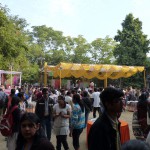
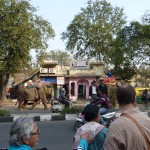
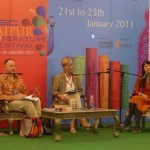
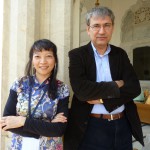
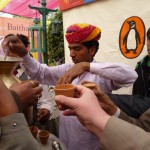
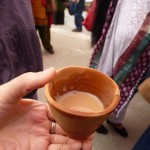
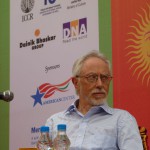
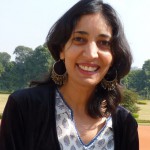
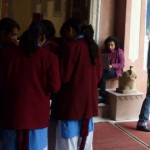
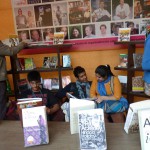
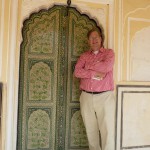
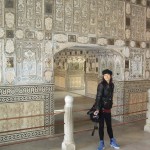
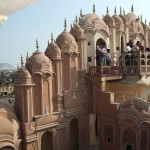
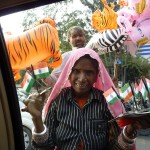
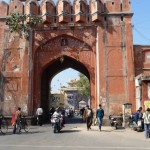


Leave a Comment